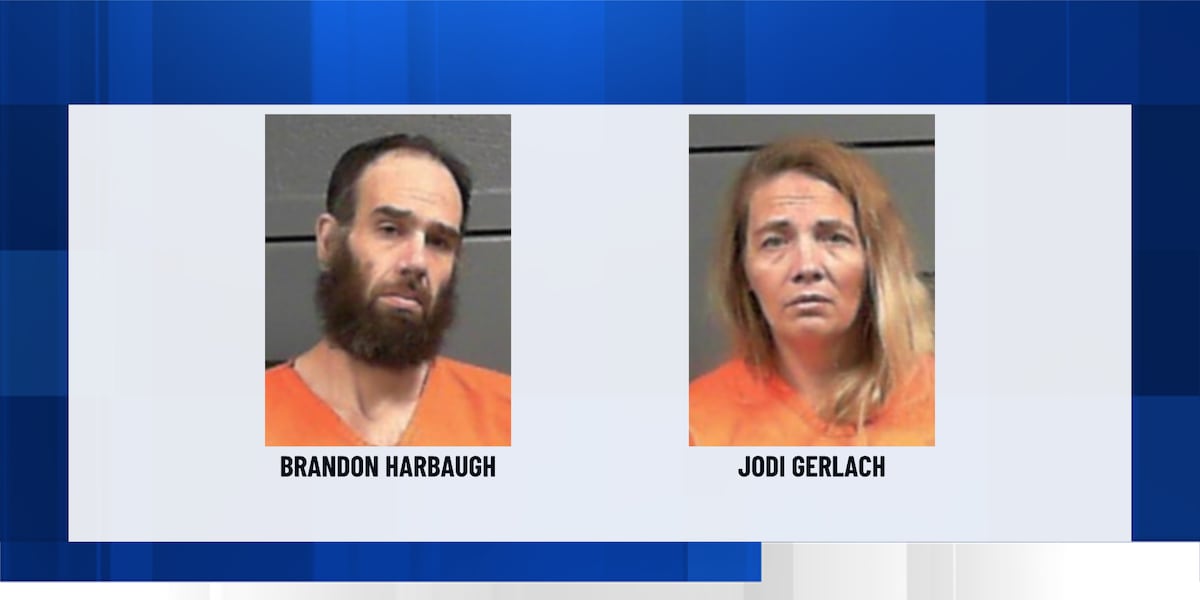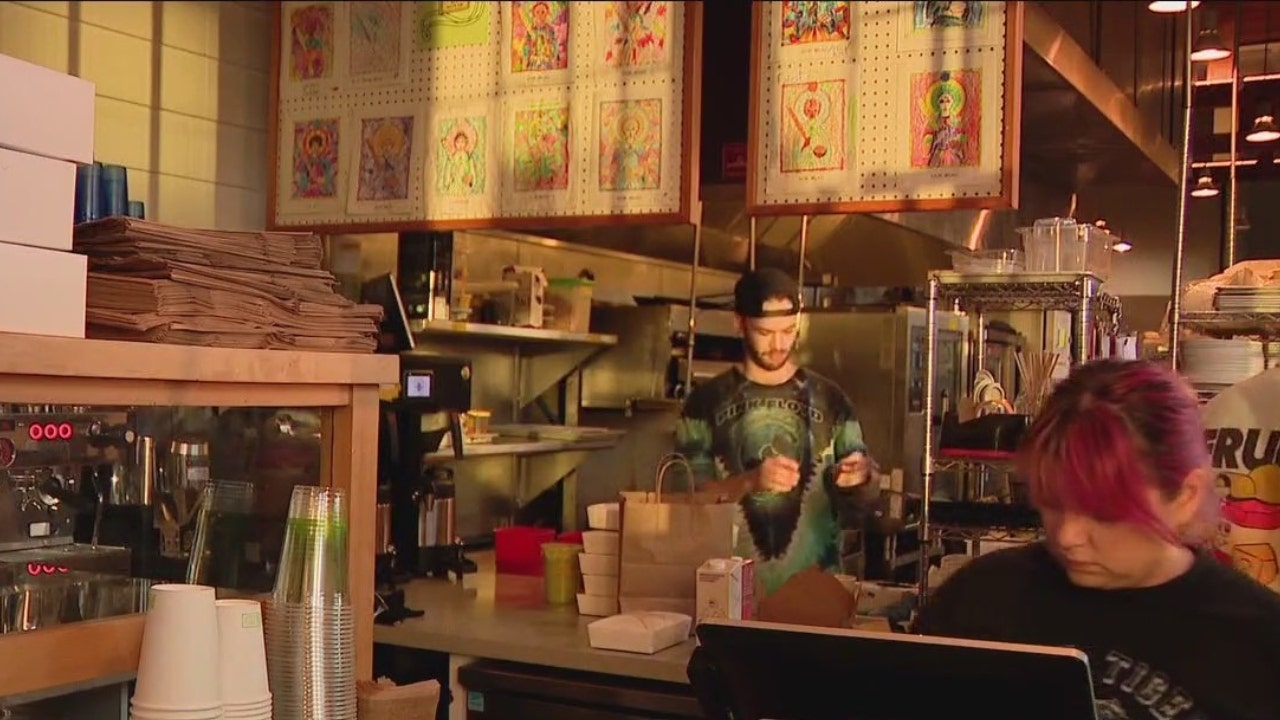Virginia
She Was Battling Virginia Segregation at the Age of 9
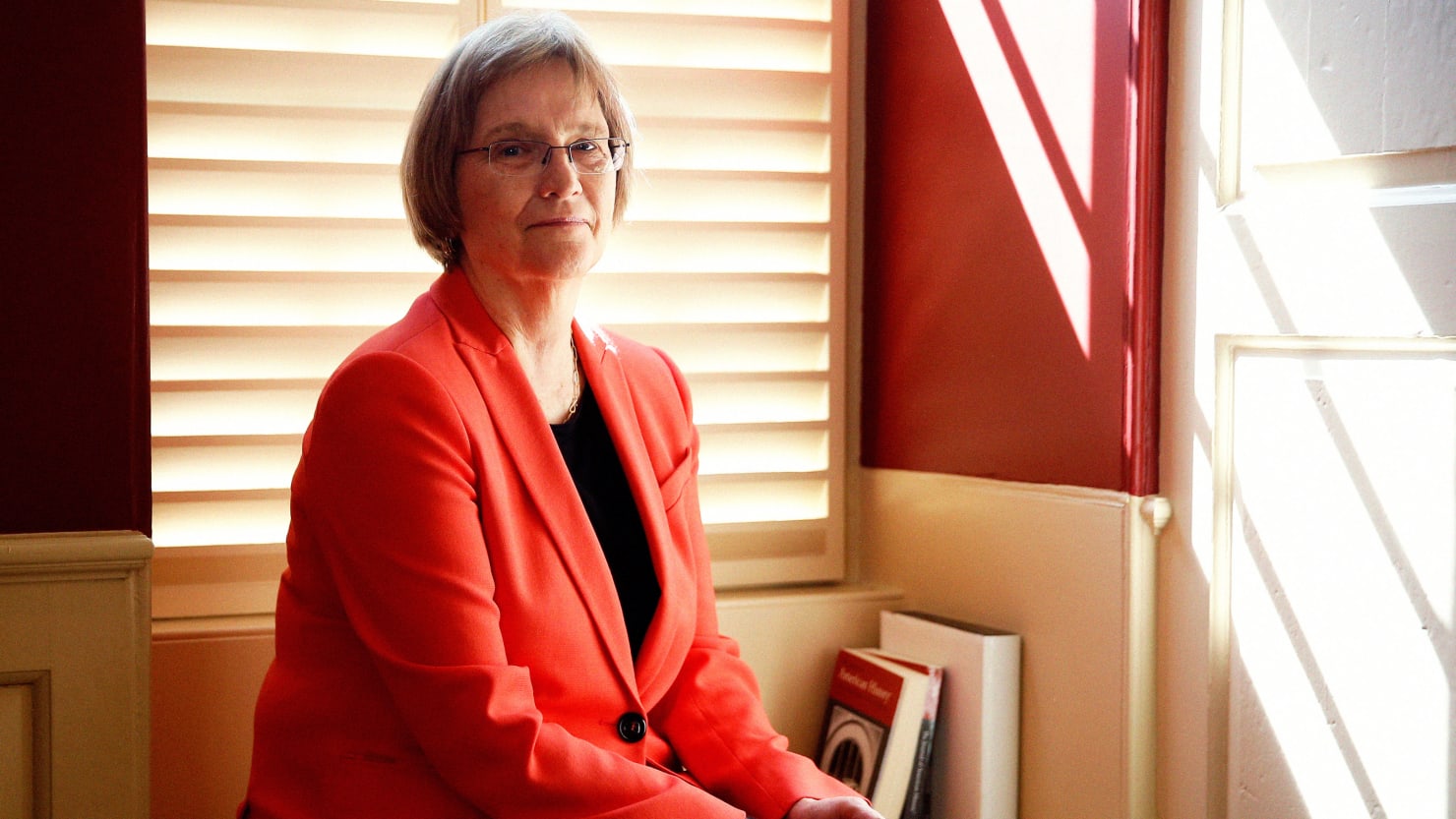
Sometimes you can tell a book by its cover. That’s certainly the case with former Harvard President Drew Gilpin Faust’s new memoir, Necessary Trouble: Growing Up at Midcentury. The last thing Faust wants her readers to care about is what she is best known for—being the first woman to lead Harvard.
The front cover of Necessary Trouble is a close-up of Faust at 19, lying on the lawn at Bryn Mawr College looking intently through oversize glasses at whoever is photographing her. The picture is from the period in Faust’s life when she was shedding her identity as a young woman from a wealthy Virginia family and becoming a political activist who in the 1960s would define herself by her participation in the decade’s civil rights and anti-Vietnam War movements.
Becoming Harvard’s 28th president and presiding over the university’s dramatic expansion during an administration that went from 2007 to 2018 may be a story Faust tells in a future book, but what matters to her in Necessary Trouble is explaining why her privileged background and her education at Concord Academy and Bryn Mawr College did not lead her to the conventional life she was expected to embrace.
Faust takes pride in being a traitor to her class—an epithet applied to President Franklin Roosevelt during the New Deal era. The title for her book comes from a speech that civil-rights leader John Lewis, later a friend of Faust’s, gave in 2020 on the 55th anniversary of the Selma-to-Montgomery Voting Rights March.
At an early age Faust became aware of the genteel racism that prevailed at her home in Virginia. The Black servants who made her parents’ day-to-day life easier (her mother never learned to cook) were expected to use a separate bathroom behind the kitchen and were addressed by the younger Faust by their first names.
When the Montgomery Bus Boycott took place in 1955-56, it prodded Faust into thinking about how widespread racism in America was. In the fifth grade she sent a letter to President Eisenhower letting him know she believed segregation was unchristian. “I am nine years old and I am white, but I have many feelings about segregation,” she wrote.
Four years later, when Faust left home to enter Concord Academy in Massachusetts, she faced the same contrast between the comfortable world she enjoyed and the racism around her. Concord was, as Faust saw it, a “bubble for white Anglo-Saxon Protestants,” but it was also a bubble she did her best to reach beyond. When Martin Luther King Jr. spoke at the nearby Groton School, Faust was one of 20 Concord girls who took the school bus to hear him.
Drew Gilpin Faust’s passport photo from 1963.
Courtesy of Drew Gilpin Faust
By the time Faust entered Bryn Mawr College in 1964, she was even more skeptical about the moral values of the world in which she was being educated. Rightly so. While Bryn Mawr was a highly intellectual women’s college, it embraced an unspoken racism similar to that which Faust grew up with. Bryn Mawr students were waited on at dinner by maids in uniform, and the heavy work at the school was done by porters, who, like the maids, were Black. The maids lived on the top floor of the residence halls, the porters in the basement.
It was a system that Faust was unable to change, despite the efforts she and a classmate made to expose the “plantation atmosphere.” Faust responded to her disappointment with Bryn Mawr’s administration by joining the college’s Students for a Democratic Society (SDS).
In March 1965, when the voting rights protests in Selma, Alabama, began, Faust was at a point in her life when she felt capable of turning her words into actions. Seeing television clips of “Bloody Sunday,” the day on which John Lewis and other protesters were beaten as they marched in Selma, was a turning point for Faust. “From that moment, I knew I had to do something. If I did not stand up, if I did not act after witnessing this, I would be ashamed forever,” she writes.
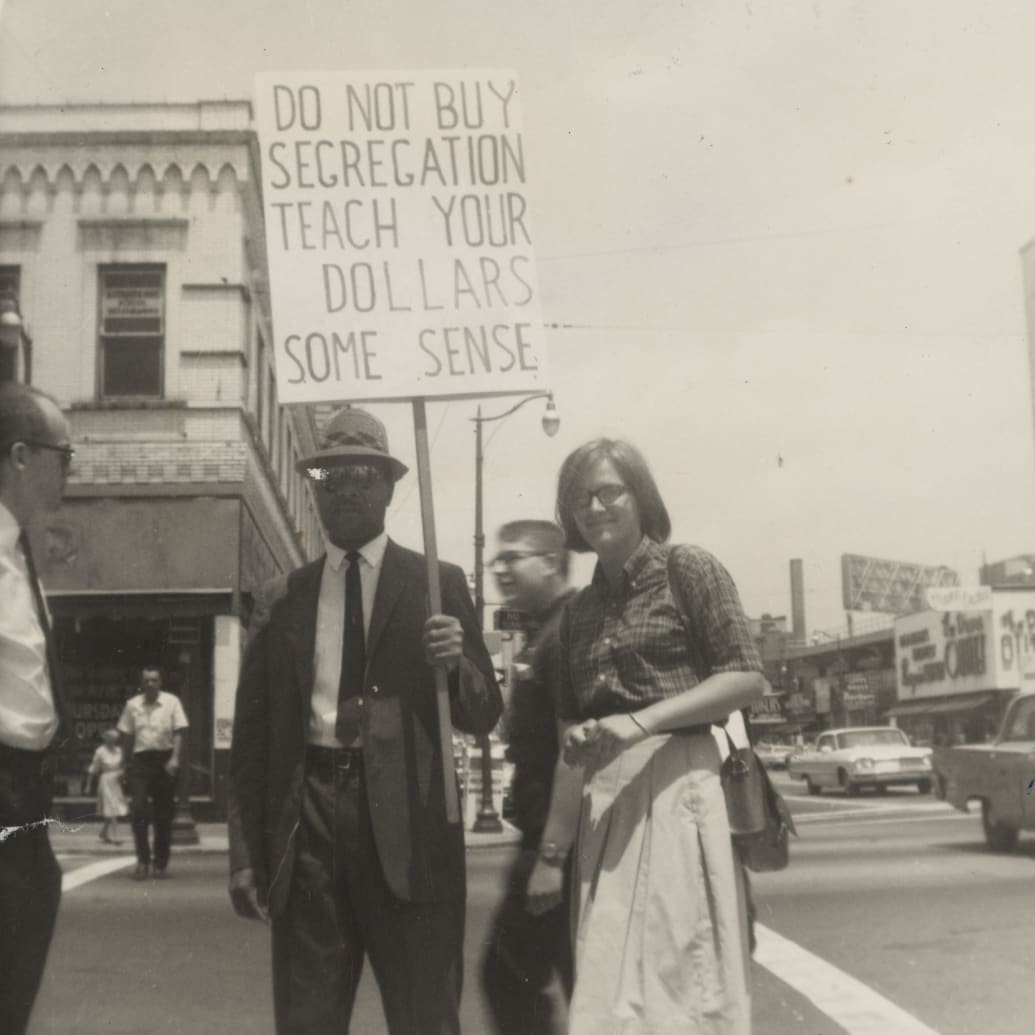
Drew Gilpin Faust at a protest in Birmingham during the summer of 1964.
Courtesy of Drew Gilpin Faust
With her Haverford boyfriend and a car borrowed from his roommate, Faust drove the 1,000 miles from Bryn Mawr to Selma and became part of the Selma protests. The march accelerated the changes she was already going through. Staying in Selma with a Black family who housed her and her boyfriend was eye-opening. The family’s goodness and the risks they were taking in a town in which whites controlled most of the jobs touched Faust profoundly.
The problem for Faust was she could not stay in Selma until the end of the march. “Soon I was back at Bryn Mawr, which had not changed a bit during the four momentous days I had been gone. Its quiet seemed surreal after the intensity I had experienced,” Faust writes. A professor, aware that Faust had missed his class in order to go to Selma, made sure she felt his wrath for the hastily done paper she turned in. “I cannot help deploring the effect on the paper that decision all too evidently had,” he wrote in his comments.
After Selma, Faust turned her attention to the protests over the Vietnam War. In 1967 she traveled to Washington to participate in the October antiwar demonstrations at the Pentagon that Norman Mailer so memorably captured in The Armies of the Night.
“Faust the historian has been fueled by the same awareness of racial injustice that moved her in boarding school and college.”
Finally, at the end of her senior year, at a time when she was president of Bryn Mawr’s Self-Government Association, Faust was instrumental in getting the college to abandon its rules forbidding Bryn Mawr students from signing out for overnight, off-campus stays. For a college that prided itself on educating independent woman, the change in rules governing students’ sexual freedom that Faust helped engineer was a breakthrough event at a time when the women’s movement was in its early stages.
Necessary Trouble concludes with Faust pointing out that in the 1968 presidential election, she voted for the Black comedian and activist Dick Gregory because she could not bear to support either Hubert Humphrey or Richard Nixon, the Democratic and Republican presidential candidates. She is delighted to report that 40 years later her home state of Virginia broke from its past by casting its electoral ballots for Barack Obama.

Drew Gilpin Faust, center, graduating from Bryn Mawr college.
Stephen Faust
The result is a bittersweet ending to a memoir in which Faust does not tell us that after leaving Bryn Mawr she earned a Ph.D. in American Civilization from the University of Pennsylvania and embarked on a distinguished academic career. Her modesty is admirable, but there is an important connection between the first decades of Faust’s life and her last half century. As her books, particularly The Republic of Suffering: Death and the American Civil War and Southern Stories: Slaveholders in Peace and War, make clear, Faust the historian has been fueled by the same awareness of racial injustice that moved her in boarding school and college. She has not mellowed with age.
In contrast to such civil rights memoirs of the 1960s as Anne Moody’s Coming of Age in Mississippi and Paul Cowan’s Making of an UnAmerican—both published when their authors were young—Necessary Trouble has significant distance from the period it describes. In Faust’s case that distance is a plus. Her memory is sharp, and she has been able to put the successes and failures of the era in which she grew up in perspective. By coincidence Necessary Trouble was published just a month after Claudine Gray, Harvard’s first Black president, took office.
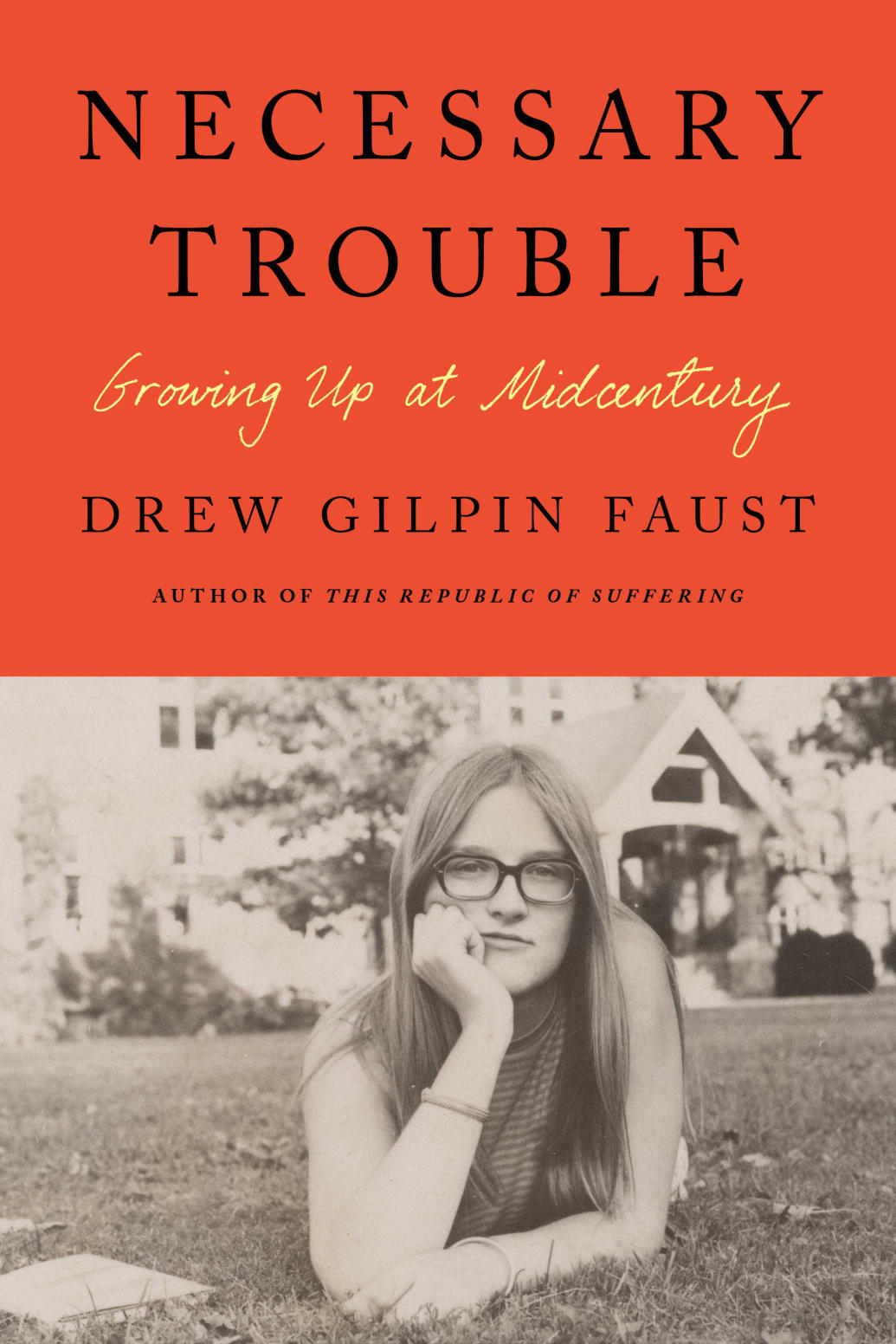
Nicolaus Mills is professor of American literature at Sarah Lawrence College and author of Like a Holy Crusade: Mississippi 1964—The Turning of the Civil Rights Movement in America.

Virginia
Yes, Virginia (and all other believers) there is a Santa Claus | Column

Editor’s note: This is a reprint of a timeless column written years ago by the journalist Eric Newton.
More than a hundred years ago, an 8-year-old girl wrote a letter to the editor of the New York Sun: “Please tell me the truth: is there a Santa Claus?” The answer — “Yes, Virginia, there is a Santa Claus” — is the most reprinted newspaper editorial of all time, a classic appearing in dozens of languages, in editorials, books and movies, on posters and stamps, even in the Old Farmer’s Almanac.
What makes it endure? Is it because “Yes, Virginia” perpetuates the best traditions of Christmas? Because it touches on the connection between parents and children? Because it makes us long for the days of the great American newspaper? Or is it something more?
The author, Sun editorial writer Francis Pharcellus Church, grumbled a bit when handed the little girl’s letter. “Some of my little friends say there is no Santa Claus,” wrote Virginia O’Hanlon. “Please tell me the truth …” Something in the innocent query touched the veteran newsman. Church quickly turned in a 500-word reply, printed on Sept. 21, 1897, on Page 6, with no byline.
“Yes, Virginia, there is a Santa Claus,” Church wrote. “He exists as certainly as love and generosity and devotion exist, and you know that they abound and give to your life its highest beauty and joy.”
The editorial was destined to live on, far beyond Church’s death in 1906; the Sun’s, in 1950; and even Mrs. Virginia O’Hanlon Douglas’ in 1971.
By its 100th anniversary, Church’s gift of words turned into a Christmas treasure for some 200 greeting card companies.
“You couldn’t stop it if you wanted to,” says Richard Church Thompson, a relative of the writer.
Howell Raines, a St. Petersburg (now Tampa Bay) Times alumnus and former executive editor of The New York Times, says the story speaks about generations: “What this child is doing is knocking on the door of the adult world and asking to be let in … and what this editor is doing is protecting her — and his adult readers.”
Crusty newspaper editors have a particularly soft spot for “Yes, Virginia.” The editorial evokes a time when newspapers were the most trusted news medium, when the great American editorial really was the great American editorial. As Virginia put it in her letter: “Papa says ‘If you see it in the Sun it’s so.’ ” But there is more. Church didn’t just spin another yarn about Santa Claus, notes historian William David Sloan. “He gave us a reason for believing.”
“Yes, Virginia” is not merely 100-plus years old; it’s as old as people. It’s not just about a girl in New York; it’s about children everywhere, and grown-ups big enough to remember. It’s not even about Santa; substitute the symbol of your choice. “Yes, Virginia” is about faith, about believing in things you can’t see, about wonder, joy and love.
Santa today is under attack. He’s too commercial, too European, too Christian, too fat, even. But whether you like him or not, let him live. Francis Pharcellus Church did, and we’re toasting him 100 years later. Virginia did, and she grew up to be an educator in New York to teach countless children with special needs about Christmas, newspapers, families, faith.
Spend your days with Hayes
Subscribe to our free Stephinitely newsletter
Columnist Stephanie Hayes will share thoughts, feelings and funny business with you every Monday.
You’re all signed up!
Want more of our free, weekly newsletters in your inbox? Let’s get started.
Explore all your options
“No Santa Claus!” wrote Church. “Thank God! he lives, and he lives forever. A thousand years from now, Virginia, nay, ten times ten thousand years from now, he will continue to make glad the heart of childhood.”
Eric Newton, the former managing editor of the Newseum, is now innovation chief at Arizona State University’s Walter Cronkite School of Journalism and Mass Communication.
Tuesday, September 21, 1897
Dear editor:
I am 8 years old.
Some of my little friends say there is no Santa Claus.
Papa says “If you see it in the Sun it’s so.” Please tell me the truth; is there a Santa Claus?
Virginia O’Hanlon
115 West Ninety-Fifth Street
Virginia, your little friends are wrong. They have been affected by the skepticism of a skeptical age. They do not believe except (what) they see. They think that nothing can be which is not comprehensible by their little minds. All minds, Virginia, whether they be men’s or children’s, are little. In this great universe of ours man is a mere insect, an ant, in his intellect, as compared with the boundless world about him, as measured by the intelligence capable of grasping the whole of truth and knowledge.
Yes, Virginia, there is a Santa Claus. He exists as certainly as love and generosity and devotion exist, and you know that they abound and give to your life its highest beauty and joy. Alas! how dreary would be the world if there were no Santa Claus! It would be as dreary as if there were no Virginias. There would be no childlike faith then, no poetry, no romance to make tolerable this existence. We should have no enjoyment, except in sense and sight. The eternal light with which childhood fills the world would be extinguished.
Not believe in Santa Claus! You might as well not believe in fairies! You might get your papa to hire men to watch in all the chimneys on Christmas Eve to catch Santa Claus, but even if they did not see Santa Claus coming down, what would that prove? Nobody sees Santa Claus, but that is no sign that there is no Santa Claus. The most real things in the world are those that neither children nor men can see. Did you ever see fairies dancing on the lawn? Of course not, but that’s no proof that they are not there. Nobody can conceive or imagine all the wonders there are unseen and unseeable in the world.
You tear apart the baby’s rattle and see what makes the noise inside, but there is a veil covering the unseen world which not the strongest man, nor even the united strength of all the strongest men that ever lived, could tear apart. Only faith, fancy, poetry, love, romance, can push aside that curtain and view and picture the supernal beauty and glory beyond. Is it all real? Ah, Virginia, in all this world there is nothing else real and abiding. No Santa Claus! Thank God! he lives, and he lives forever. A thousand years from now, Virginia, nay, ten times ten thousand years from now, he will continue to make glad the heart of childhood.
Virginia
Good News: Owl surprises Virginia family by perching atop Christmas tree

IE 11 is not supported. For an optimal experience visit our site on another browser.
-
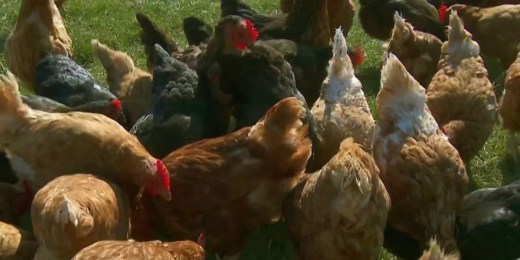
Bird flu reaches zoos, further threatening endangered species
01:52
-

Congress considers ban on Chinese-made drones used in U.S.
02:30
-
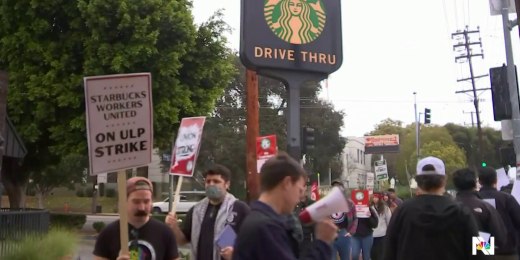
Starbucks union strike expands as workers demand pay raises
01:28
-
Now Playing
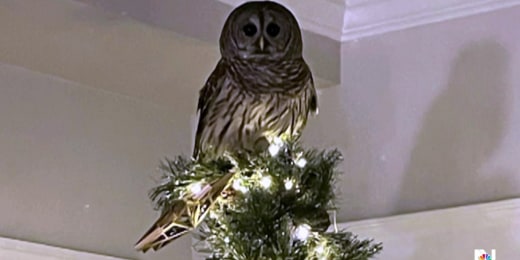
Good News: Owl surprises Virginia family by perching atop Christmas tree
01:30
-
UP NEXT
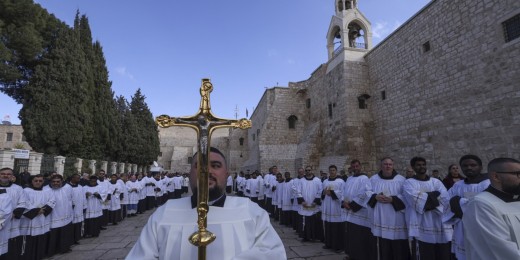
Bethlehem faces somber Christmas as Israel-Hamas war rages on
02:22
-
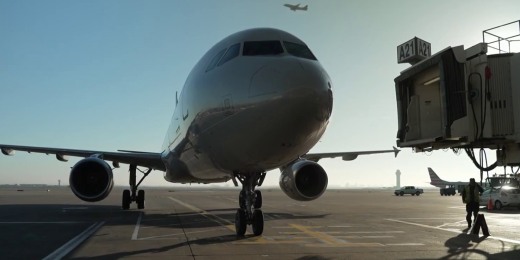
American Airlines temporarily grounds all flights, snarling holiday travel
02:11
-
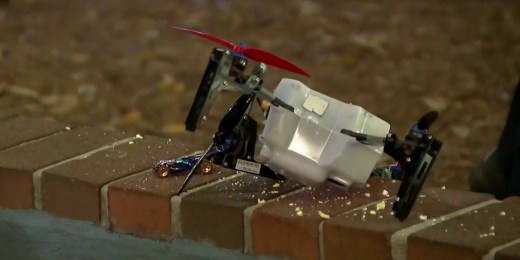
7-year-old boy seriously injured after drones fall on Orlando holiday show
01:20
-
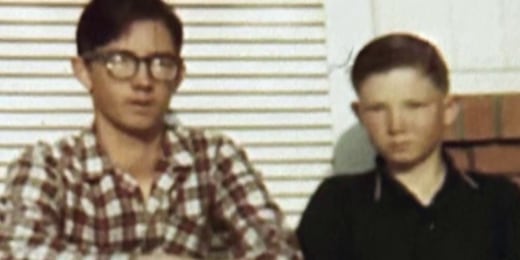
Man learns about brother’s death from NBC News report on unclaimed bodies
03:36
-
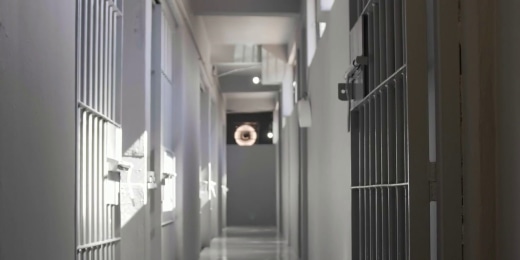
Biden commutes nearly every federal death row inmate to life without parole
02:48
-
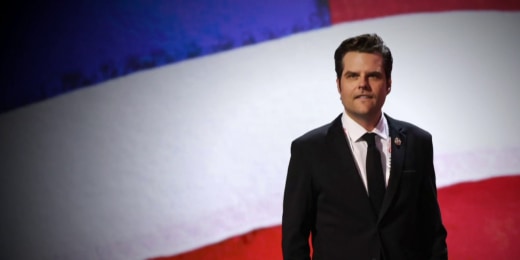
New report says Matt Gaetz may have violated laws on prostitution, statutory rape
02:20
-
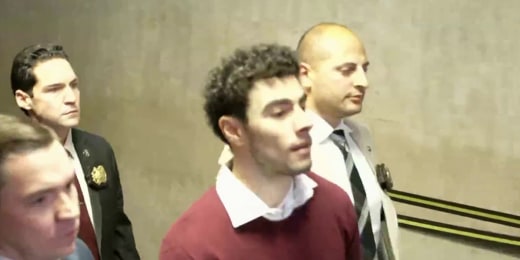
Luigi Mangione pleads not guilty to New York state charges in UnitedHealthcare CEO murder
01:40
-
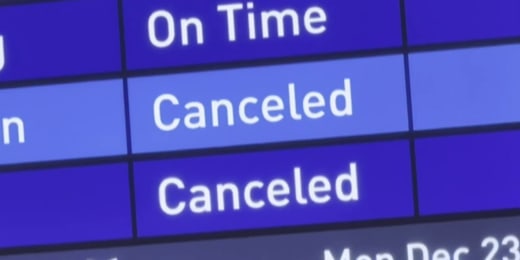
Holiday travel ramps up as holiday week begins
02:12
-
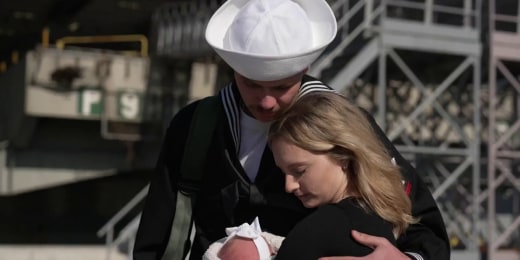
3,500 U.S. Navy sailors, service members reunite with families ahead of holiday celebrations
06:08
-
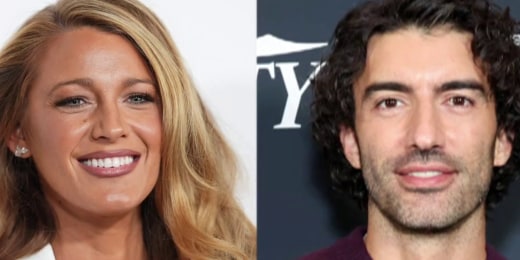
New fallout after Blake Lively sexual harassment allegations
02:01
-
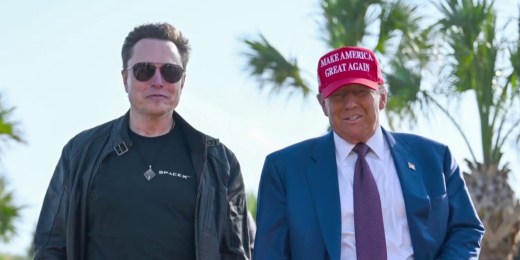
Trump addresses Elon Musk’s influence in Phoenix speech
01:42
-
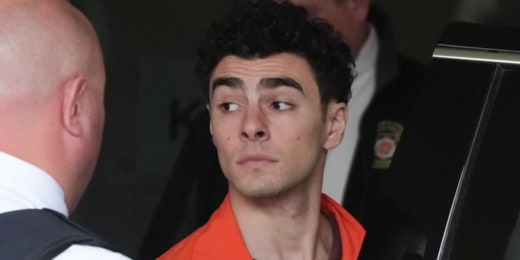
UnitedHealthcare CEO murder suspect Luigi Mangione to face state charges on Monday
01:00
-
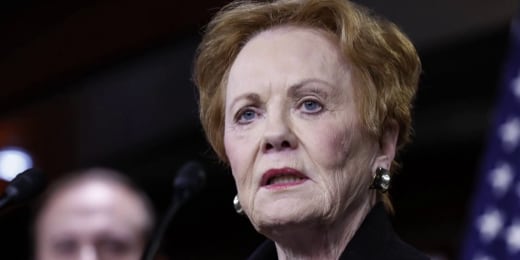
Report: Sitting Texas congresswoman in senior living facility
00:56
-

U.S. fighter jet shot down by friendly fire over Red Sea
01:03
-

Man shot, killed by police after driving into Texas mall during high-speed chase
01:21
-
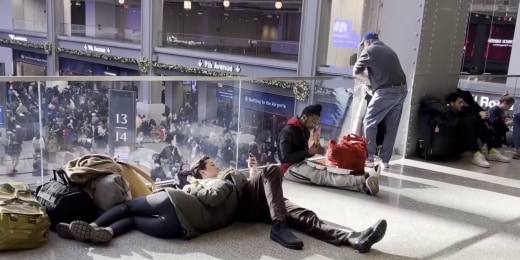
Amtrak delays snarl holiday train travel along much of East Coast
01:38
-

Bird flu reaches zoos, further threatening endangered species
01:52
-

Congress considers ban on Chinese-made drones used in U.S.
02:30
-

Starbucks union strike expands as workers demand pay raises
01:28
-
Now Playing

Good News: Owl surprises Virginia family by perching atop Christmas tree
01:30
-
UP NEXT

Bethlehem faces somber Christmas as Israel-Hamas war rages on
02:22
-

American Airlines temporarily grounds all flights, snarling holiday travel
02:11
Virginia
‘Yes, Virginia, there is a Santa Claus’ (Editorial Board Opinion)

Today, Christmas Eve, we continue our tradition of republishing a 19th century New York editorial writer’s passionate defense of Santa Claus.
The journalist Francis P. Church, a native of Rochester, wrote thousands of editorials for The New York Sun. He is known for just one: an unsigned response to a letter from an 8-year-old girl being teased by her friends for believing in the Jolly Old Elf.
Now as then, Church’s reply to little Virginia O’Hanlon invites us to open our hearts to the mystery, wonder and joy of the season. You can’t help but smile to read:
“Alas! How dreary would be the world if there were no Santa Claus! It would be as dreary as if there were no Virginias.”
We wish you and yours a Merry Christmas.
Dear Editor,
I am 8 years old. Some of my little friends say there is no Santa Claus. Papa says, “If you see it in The Sun, it’s so.” Please tell me the truth, is there a Santa Claus?
Virginia O’Hanlon
115 W. Ninety Fifth St.
Virginia,
Your little friends are wrong. They have been affected by the skepticism of a skeptical age. They do not believe except they see. They think that nothing can be which is not comprehensible by their little minds. All minds, Virginia, whether they be men’s or children’s, are little. In this great universe of ours, man is a mere insect, an ant, in his intellect as compared with the boundless world about him, as measured by the intelligence capable of grasping the whole of truth and knowledge.
Yes, Virginia, there is a Santa Claus. He exists as certainly as love and generosity and devotion exist, and you know that they abound and give to your life its highest beauty and joy. Alas! how dreary would be the world if there were no Santa Claus! It would be as dreary as if there were no Virginias. There would be no childlike faith then, no poetry, no romance to make tolerable this existence. We should have no enjoyment, except in sense and sight. The external light with which childhood fills the world would be extinguished.
Not believe in Santa Claus! You might as well not believe in fairies. You might get your papa to hire men to watch in all the chimneys on Christmas Eve to catch Santa Claus, but even if you did not see Santa Claus coming down, what would that prove? Nobody sees Santa Claus, but that is no sign that there is no Santa Claus. The most real things in the world are those that neither children nor men can see. Did you ever see fairies dancing on the lawn? Of course not, but that’s no proof that they are not there. Nobody can conceive or imagine all the wonders there are unseen and unseeable in the world.
You tear apart the baby’s rattle and see what makes the noise inside, but there is a veil covering the unseen world which not the strongest man, nor even the united strength of all the strongest men that ever lived could tear apart. Only faith, poetry, love, romance, can push aside that curtain and view and picture the supernal beauty and glory beyond. Is it all real? Ah, Virginia, in all this world there is nothing else real and abiding.
No Santa Claus! Thank God! He lives and lives forever. A thousand years from now, Virginia, nay 10 times 10,000 years from now, he will continue to make glad the heart of childhood.
“Is There a Santa Claus?” reprinted from the Sept. 21, 1897, edition of The New York Sun.
About Syracuse.com editorials
Editorials represent the collective opinion of the Advance Media New York editorial board. Our opinions are independent of news coverage. Read our mission statement. Members of the editorial board are Tim Kennedy, Trish LaMonte and Marie Morelli.
To respond to this editorial: Submit a letter or commentary to letters@syracuse.com. Read our submission guidelines.
If you have questions about the Opinions & Editorials section, contact Marie Morelli, editorial/opinion lead, at mmorelli@syracuse.com
-

 Business1 week ago
Business1 week agoFreddie Freeman's World Series walk-off grand slam baseball sells at auction for $1.56 million
-
/cdn.vox-cdn.com/uploads/chorus_asset/file/23951353/STK043_VRG_Illo_N_Barclay_3_Meta.jpg)
/cdn.vox-cdn.com/uploads/chorus_asset/file/23951353/STK043_VRG_Illo_N_Barclay_3_Meta.jpg) Technology1 week ago
Technology1 week agoMeta’s Instagram boss: who posted something matters more in the AI age
-
/cdn.vox-cdn.com/uploads/chorus_asset/file/24924653/236780_Google_AntiTrust_Trial_Custom_Art_CVirginia__0003_1.png)
/cdn.vox-cdn.com/uploads/chorus_asset/file/24924653/236780_Google_AntiTrust_Trial_Custom_Art_CVirginia__0003_1.png) Technology4 days ago
Technology4 days agoGoogle’s counteroffer to the government trying to break it up is unbundling Android apps
-
News1 week ago
East’s wintry mix could make travel dicey. And yes, that was a tornado in Calif.
-

 News5 days ago
News5 days agoNovo Nordisk shares tumble as weight-loss drug trial data disappoints
-

 Politics5 days ago
Politics5 days agoIllegal immigrant sexually abused child in the U.S. after being removed from the country five times
-

 Entertainment6 days ago
Entertainment6 days ago'It's a little holiday gift': Inside the Weeknd's free Santa Monica show for his biggest fans
-
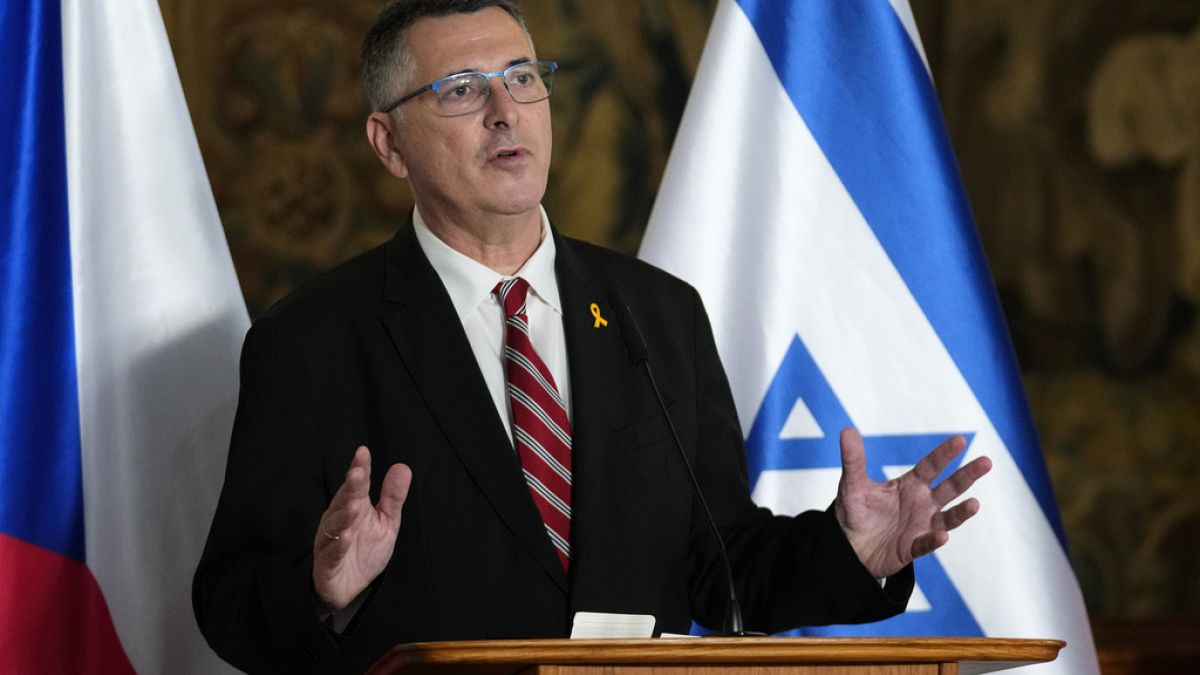
 World1 week ago
World1 week agoIsrael to close its embassy in Ireland over 'anti-Israel policies'
